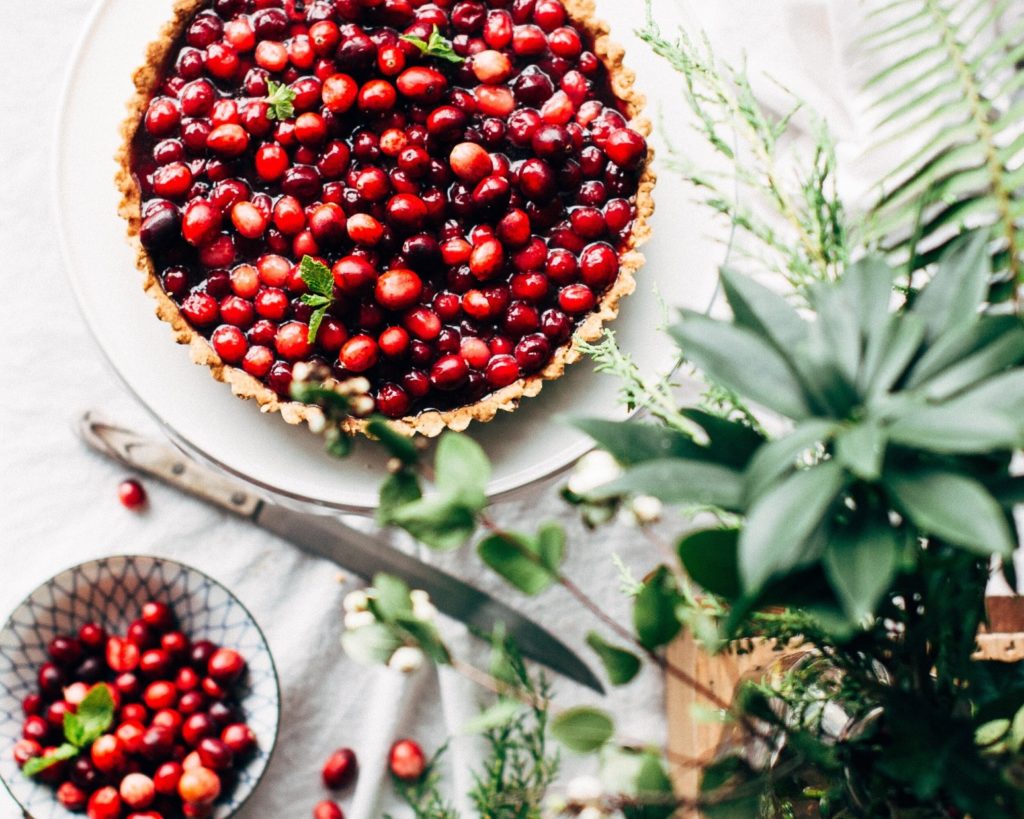Welcome to the most wonderful time of the year!
No matter which one of the many holidays you’re likely celebrating this time of year — they all have one thing in common:
Delicious food. Enjoyed with family and friends.
We all look forward to our celebrations and enjoying our favorite recipes that we only indulge in once a year. But when we’re trying to focus on our health, the holidays can become slightly problematic.
What we once looked forward to with gleeful abandon suddenly becomes an affair laden with either anxiety beforehand or guilt for days afterward because we lost control and ruined our momentum.
But the holidays don’t have to be like this!
Below I’ve compiled a list of my top tips and tricks to help you take back control of the holidays and enjoy them without a single twinge of shame or regret.
1. Make a plan
Have you ever heard the adage, “if you fail to plan, you plan to fail”?
In the case of surviving holiday parties, this is such a key concept.
Plan out in your head (bonus points if you write it down) exactly what you want to indulge in and where your limit lies. Having set parameters before the fact can go a long way towards achieving your goals.
Been dreaming all year about your grandmother’s famous mac and cheese? Plan on having a small serving of it and forget about the other decadent choices on the table.
Know you’ll insult your co-worker if you don’t eat one of her special cookies at the holiday potluck? Keep that in mind when making a game plan for the soiree.
When we set a clear intention before the party and visualize exactly how we want to feel when we’re there and afterward, we’re much more likely to pull it off.
Think about how awesome you’ll feel knowing that you got to enjoy some of your favorite foods, but you didn’t stuff yourself. You walked out of the party feeling calm, confident, and satiated. It’s a pretty good feeling, right?
2. The pre-game warm-up
It’s a good idea to make sure that you don’t arrive for the holiday part completely famished.
When we’re super hungry, we make bad choices and have a harder time stopping when we’re full.
In order to prevent this from happening to you, have a small, rather flavorless snack about an hour before the festivities begin.
Try to eat something with fat and protein to keep your blood sugar levels in check. Eating foods high in carbohydrates as a snack only serves to spike insulin and make you hungrier.
An old trick is to have a shot of olive oil or a teaspoon of coconut oil. A handful of almonds does the trick nicely as well.

3. Mindful eating is your friend
Most of us eat without stopping to truly savor or even appreciate all of the food we’ve been waiting to have.
We eat while arguing heatedly about politics with our uncle. Or we eat while watching the big game on TV.
All of this distracted eating confuses our body. It’s not sure whether to focus on digesting food or the fight or flight response triggered by the stressful argument.
Try eating mindfully, slowly, savor each bite, chew it well, and appreciate the fact that it’s nourishing your body. Try putting your fork down in between bites, too. It’s not only great manners, but it also helps us to take a pause and focus on the fact that we’re eating.
The slower we eat, the better we can recognize when we are full and stop eating before we stuff ourselves, too.
Also, keep in mind that alcohol consumption impairs our judgment in many ways. Drinking while at the party may seem like a good way to loosen up, but in the end, you’ll likely find yourself having eaten more than you meant to. Try to stay sober for the best results in mindful eating.
4. This isn’t a once in a lifetime opportunity
Sure, the holidays only come once a year and your favorite aunt only makes her world-famous pie then.
But remember, just because that’s how you’ve done things in the past doesn’t mean it’s the way you’ll always have to do them.
Instead of completely gorging yourself on sweets and high-calorie, inflammatory choices — have a reasonable serving, and then plan on making your favorite again in February.
It’s just human nature that when we place ourselves in positions of extreme restriction, we tend to rebel.
Knowing that another chance to indulge in exactly what you want is just around the corner makes it less novel. And puts you in a headspace that encourages control.
5. Choose grace instead of guilt
OK, so you messed up, ate all the things, and felt like you needed to loosen your belt before you even pushed your chair away from the table…
That’s completely OK!
Don’t beat yourself up if you made a mistake. Too often I see patients who lose control in one instance and it becomes a catalyst for further transgressions. One poor choice at a holiday function turns into weeks of frenzied indulgences.
This phenomenon can be triggered by blood sugar spikes or extremely restrictive dieting that left us so hungry we can’t seem to control ourselves.
But it’s also a psychological thing too. We tend to think we have to be perfect in order to achieve results. But nothing is further from the truth. Small changes, implemented consistently add up to massive victories.
And if you do overeat, give your body a nice long break from digesting food for at least 12 hours. This helps to support your liver and gets blood sugar back on track…then, focus on eating an anti-inflammatory diet for the next few days.
I hope these tips help you to survive this holiday season and not start the year off with a few more pounds to lose.
And if you’re looking for a little more in-depth guidance on how to live your best life and naturally improve your body’s healing mechanisms, I encourage you to check out my book, Built to Thrive, which is full of practical tips you can apply today to take control of your health.
References
https://www.dominican.edu/dominicannews/study-highlights-strategies-for-achieving-goals
http://research.it.uts.edu.au/creative/eae/MM/LongTerm.pdf
https://www.ncbi.nlm.nih.gov/pubmed/9416027
https://www.ncbi.nlm.nih.gov/pmc/articles/PMC5877547/
https://www.ncbi.nlm.nih.gov/pmc/articles/PMC5556586/
https://www.ncbi.nlm.nih.gov/pubmed/8040513
https://www.sciencedaily.com/releases/2019/07/190702152749.htm


